Best Time to visit Zambia
Best Time for a Zambia Safari Holiday

- 5 star reviews
- exclusive safaris
- bespoke excursions
Best Time to visit Zambia for safaris
Best time for safaris and holidays in Zambia
Zambia is one of Africa’s most authentic and thrilling safari destinations, renowned for its raw wilderness, dramatic river systems, and pioneering role in walking safaris. The country is home to some of the continent’s finest national parks, including South Luangwa, Lower Zambezi, and Kafue, each offering unique landscapes, exceptional wildlife viewing, and a more off-the-beaten-track experience compared to its neighbors. Zambia’s untamed appeal lies in its ability to deliver deep immersion in nature, guided by some of Africa’s most knowledgeable rangers and trackers.
What sets Zambia apart is its intimate and uncrowded safari style. Many lodges operate in private concessions or remote parts of vast parks, ensuring privacy and exclusivity for guests. Walking safaris, night drives, and canoeing along the Zambezi River allow for a full-spectrum safari experience beyond traditional game drives. The Big Five, wild dogs, leopards, and prolific birdlife make the country a paradise for wildlife enthusiasts and seasoned safari-goers alike.
Zambia is also a seasonal safari destination, and understanding its weather and access patterns is key to planning the ideal trip. Much of the country becomes difficult to navigate during the rains, but during the dry season, its parks come alive with concentrated wildlife activity. Whether you’re witnessing a lion hunt in the Luangwa Valley, gliding past hippos in a canoe, or visiting the majestic Victoria Falls, Zambia offers adventure, solitude, and some of the richest safari experiences in Africa.

Start Planning Your African safaris
We will be glad to receive your safari inquiry and bookings to help you plan and organize your Zambia Safari. Our able safari managers will be ready to go through the process to customize and tailor-make your next safari adventure in Zambia.
Month by month Zambia guide
month by month Zambia safari guide
Each month in Zambia has its unique flavor. From the lush birthing season of the green months to the intense predator activity of the dry months, travelers can tailor their safari to match personal interests be it photography, birding, walking safaris, or predator tracking. The detailed monthly guide that follows will help pinpoint what to expect, what to do, and where to go in each month of the year.
Best Time To Visit Zambia
brief travel guide to Zambia for holidays
Generally, Zambia is best to visit in the dry season when the parks are dry and viewing is dramatic, easy and action packed.
LOW SEASON:
November – March
Also known as the green or rainy season, this period sees lush, beautiful landscapes but limited accessibility in many parks. Some camps close completely, and wildlife can be harder to spot due to thick vegetation and dispersed water. However, birding is phenomenal, and some properties in South Luangwa and Lower Zambezi stay open with discounted rates.
high SEASON:
April – June
This is Zambia’s shoulder safari season. April still has traces of rain, but May and June offer increasingly good game viewing with cooler temperatures. Parks reopen, animals begin to concentrate again, and prices are more moderate than in peak months. It’s an ideal time for those wanting to avoid crowds while still experiencing quality safaris.
PEAK SEASON:
July – October
This is Zambia’s best safari window. The bush is dry and open, water sources are limited, and wildlife gathers in high concentrations, making animal sightings frequent and dramatic. It’s also the best time for walking safaris and canoe excursions. Availability in top camps is limited and prices are highest, so early booking is essential.
Detailed Month by month Travel guide
Zambia TRAVEL GUIDE - best safari guide to Zambia
Zambia’s climate follows a predictable seasonal rhythm that divides the year into a wet green season, a transitional shoulder period, and the long dry safari season. These shifts significantly affect wildlife viewing, park accessibility, and pricing. The green season (November to March) brings life giving rains, vibrant vegetation, and a boom in birdlife, but many lodges close due to impassable roads. The shoulder months (April–May and October–November) are excellent for fewer crowds and dynamic scenery. The dry season (June to September) is Zambia’s peak safari window, offering spectacular wildlife sightings as animals gather around shrinking water sources.
January
Wet Season
January falls deep within Zambia’s wet season, characterized by heavy rains, high humidity, and vibrant, lush greenery. While the rain can make some roads impassable, especially in more remote national parks, the landscape is strikingly beautiful, and the country pulses with life. Temperatures remain warm, and the rains typically come in dramatic afternoon bursts.
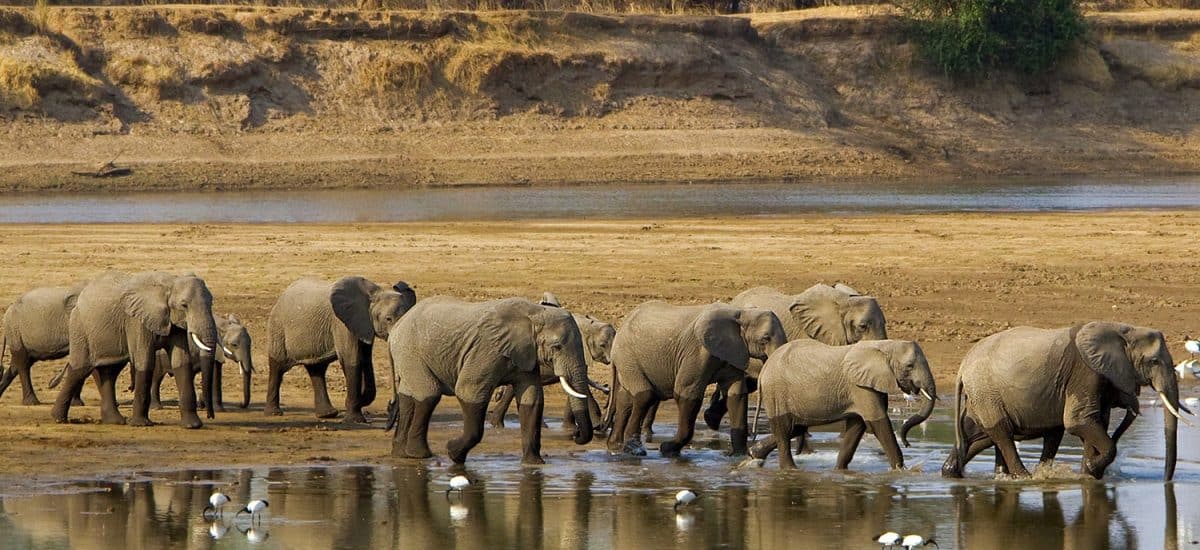
What to do in January
This is the heart of the green season, perfect for birdwatchers and photographers. Migratory bird species are abundant, and the bush is alive with color. Game viewing is more difficult due to the thick vegetation, but cultural tours, boat cruises, and visits to Victoria Falls, now full and thundering are highly rewarding. It’s also calving season, making it possible to see young animals.
- Victoria Falls
- Lower Zambezi River
- Livingstone
- South Luangwa
February
Wet Season
February continues the wet season, bringing consistent rainfall, lush vegetation, and high humidity. The bush remains dense, and some parks, particularly in the north and west, are inaccessible due to flooding. However, the rich colors of the landscape and the serenity of fewer tourists make it a tranquil time for more relaxed, nature-focused trips.
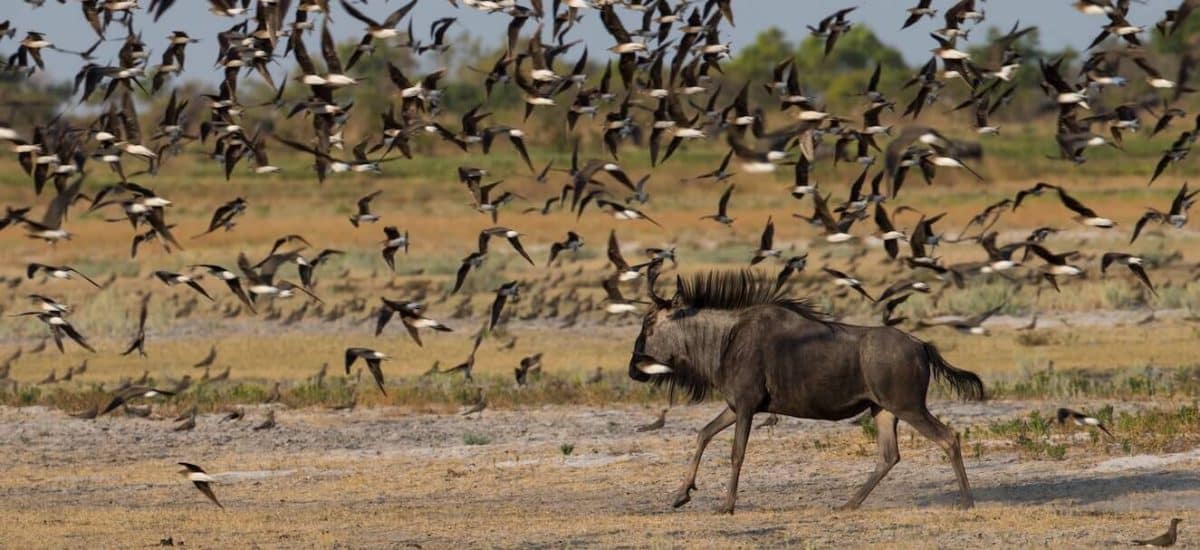
What to do in February
Birding remains excellent, and many lodges offer green season specials. Victoria Falls is still dramatic, and Livingstone offers activities like museum visits, cultural centers, and scenic helicopter flights. Some wildlife areas offer limited game drives on higher ground. This month is also ideal for couples seeking quiet getaways with dramatic natural backdrops.
- Victoria Falls
- Livingstone
- Kafue
- South Luangwa
March
Wet Season
March is the final month of Zambia’s rainy season. While there is still rain, especially in the afternoons, the frequency begins to taper off. The landscape remains beautifully green, and many animals are still giving birth. Road conditions begin to improve, and game becomes slightly easier to spot in more accessible regions.

What to do in March
This is a great month for spotting young animals and catching the tail end of peak birding. Victoria Falls remains a dramatic spectacle, while the Lower Zambezi region begins to clear up. Cultural safaris and river activities are still accessible. It’s also a good month for discounted rates and fewer crowds before the dry season starts.
- Victoria Falls
- Lower Zambezi
- South Luangwa
- Livingstone
April
Dry Season
April signals the beginning of Zambia’s dry season, though isolated showers may still occur. The rains recede, skies clear, and the bush remains vibrant and green. It’s the shoulder season, transitioning from wet to dry when landscapes are stunning, with fewer visitors and increasingly passable roads.
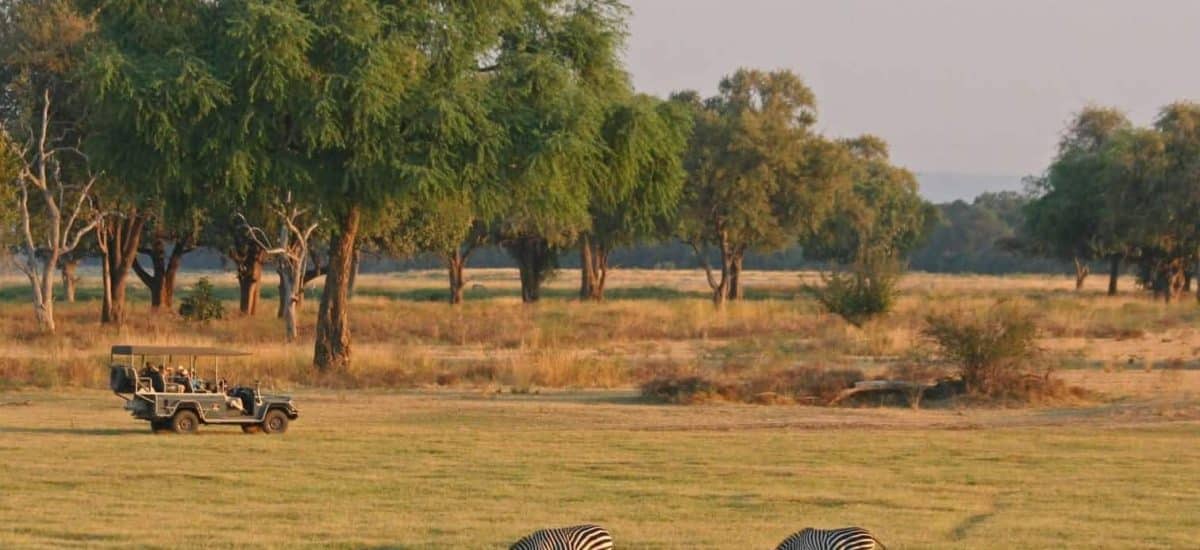
What to do in April
This is an excellent time for photographers and early safari-goers. Some bush camps begin to reopen, and game drives become more rewarding as visibility improves. Victoria Falls remains at peak water level, offering a truly dramatic view. Boat trips and walking safaris in drier regions like the Lower Zambezi begin to pick up.
- Lower Zambezi
- South Luangwa
- Kafue
- Victoria Falls
May
Dry Season
May marks the start of Zambia’s cooler, dry season. Rainfall is rare, and the bush begins to thin out. Temperatures drop slightly, especially at night, and roads across the country become more accessible. Wildlife sightings improve as animals begin moving toward permanent water sources.
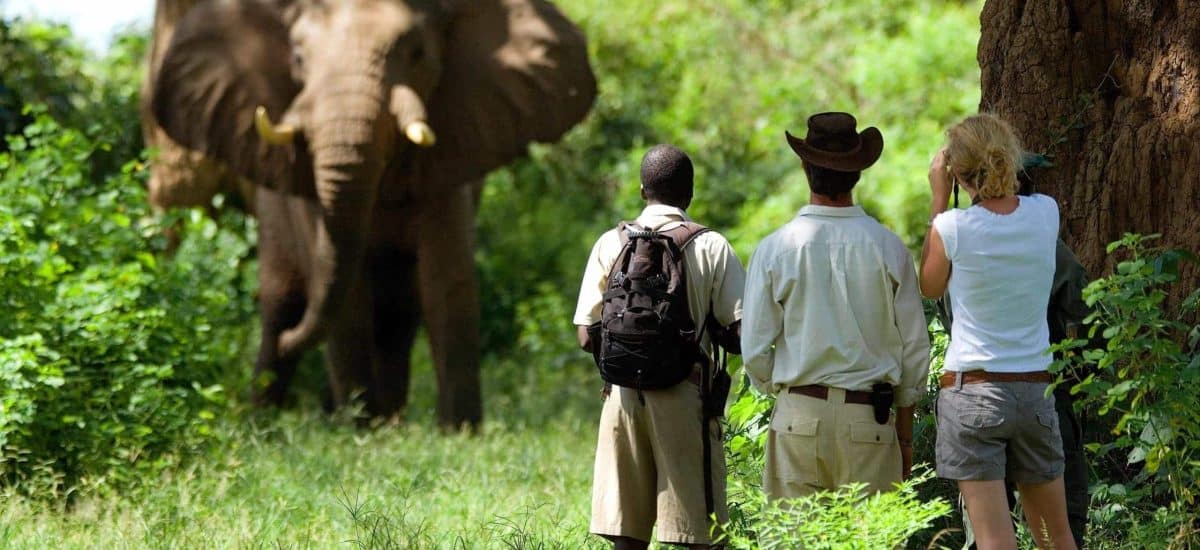
What to do in May
Game viewing begins to excel, especially in parks like South Luangwa and Kafue. This is a good time for those wanting a balance between good wildlife experiences and affordable travel. Walking safaris, canoe trips, and boat cruises become more reliable, and the scenery is still lush without the inconvenience of rain.
- South Luangwa
- Lower Zambezi
- Victoria Falls
- Kafue National Park
June
Dry Season
June is one of the best months for travel in Zambia. The dry season is in full swing, but the landscape still retains a bit of greenery from earlier rains. Temperatures are cool in the mornings and evenings, and dry, sunny days dominate. Wildlife sightings continue to improve.
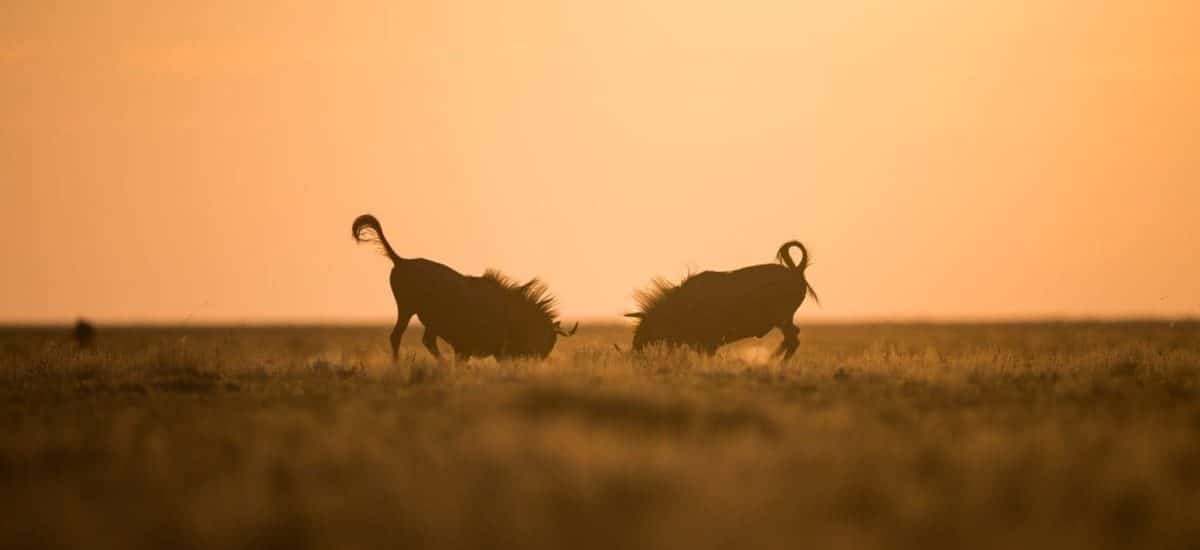
What to do in June
This is a great time for traditional safaris. Game drives become consistently productive, and walking safaris are in full swing. June is also when many bush camps reopen in earnest. The Lower Zambezi and Kafue offer excellent birding and fishing as well. Victoria Falls still has a good flow but is no longer obscured by heavy mist.
- South Luangwa
- Kafue
- Lower Zambezi
- Victoria Falls
July
Peak Season
July marks the beginning of peak safari season. It’s dry, cool, and comfortable, with clear skies and shrinking vegetation. Wildlife concentrates near rivers and pans, and safari conditions are ideal. Nights and early mornings can be chilly, especially in highland and river areas.
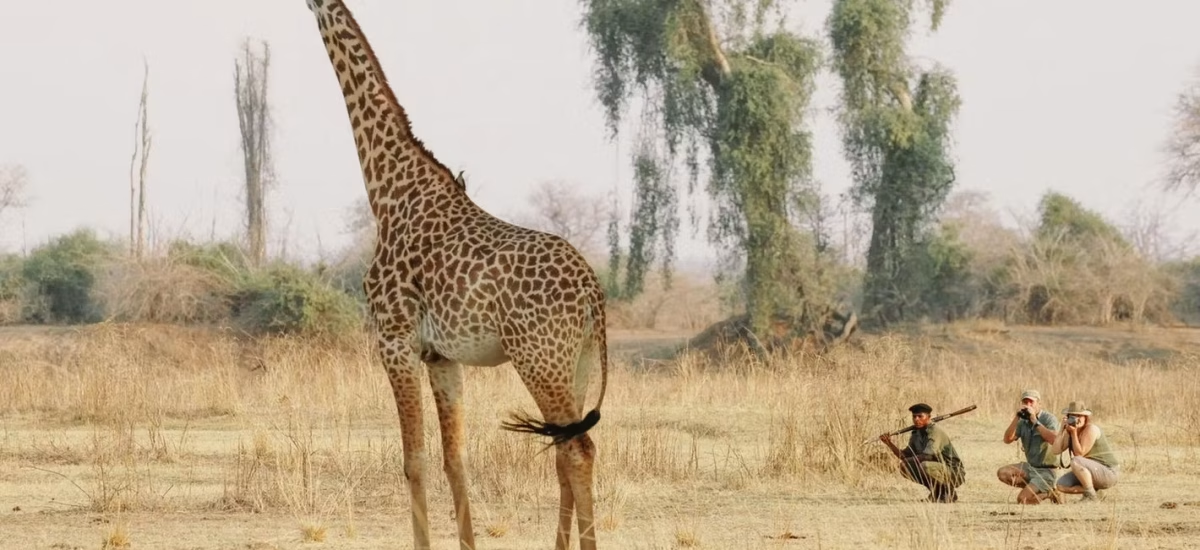
What to do in July
July is perfect for classic safaris, with excellent visibility and active wildlife. Walking safaris, especially in South Luangwa, are a major highlight. This is also a great time to canoe the Zambezi or fish in Lake Kariba. Victoria Falls is still flowing but now more clearly visible, perfect for photography and aerial views.
- Kafue
- Victoria Falls
- Lower Zambezi
- South Luangwa
August
Dry Season
August is one of the most popular months for safari in Zambia. It’s dry, sunny, and warm during the day, with chilly mornings and evenings. Wildlife is highly concentrated near water, and visibility is outstanding. The bush is now sparse, and predator sightings increase.
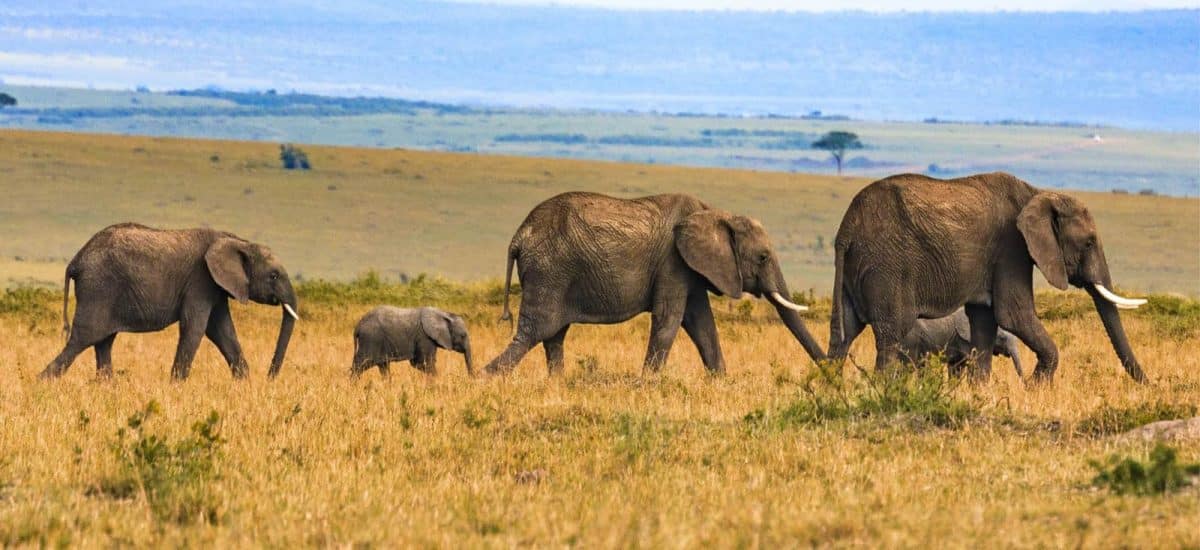
What to do in August
This is peak time for all safari activities, game drives, walking safaris, boating, and night drives. All major parks are at their best, with high wildlife density and full access. Photographers will love the dramatic lighting and clear skies. It’s advisable to book well in advance, as camps fill quickly during this month.
- South Luangwa
- Lower Zambezi
- Liuwa Plain
- Kafue
September
Dry Season
September is hot and dry, with increasing temperatures and very little vegetation. This intensifies wildlife concentration around waterholes, making it one of the most productive game viewing months. Mornings are now warmer, and evenings are comfortably cool.
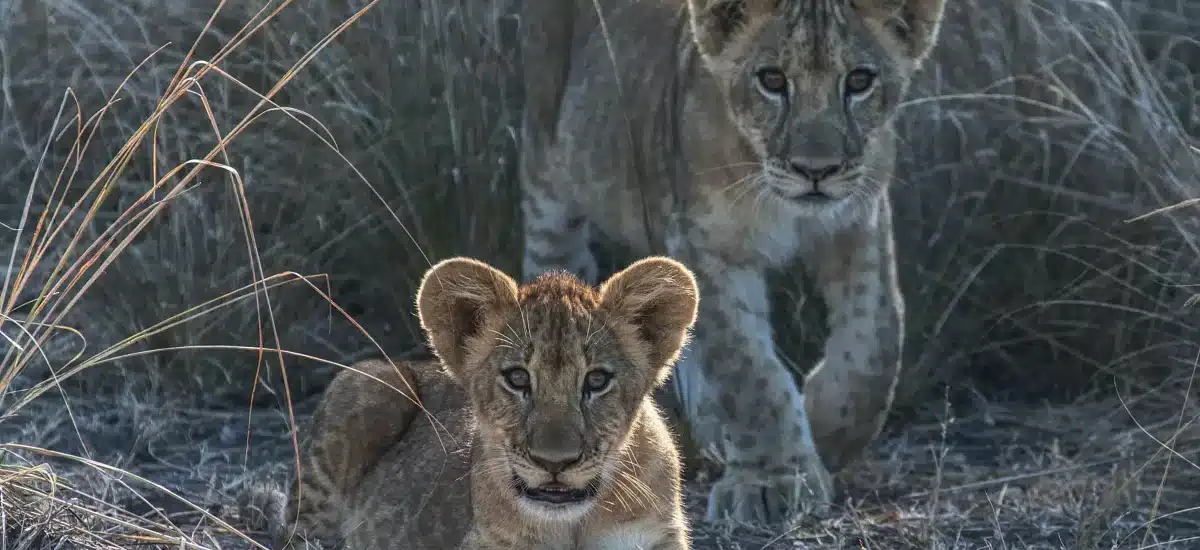
What to do in September
Expect thrilling wildlife encounters, this is the time for predator-prey interactions, elephant herds, and hunting scenes. Walking safaris are particularly rewarding, and boat safaris offer cool relief from the heat. Birding begins to pick up again as some migrant species return.
- South Luangwa
- Lower Zambezi
- Kafue
- Liuwa Plain
October
Shoulder Season (Hot & Dry)
October is the hottest and driest month of the year in Zambia. Temperatures can be extreme, particularly in the Lower Zambezi and Luangwa Valleys, but wildlife is at its most concentrated, making for remarkable game viewing. The bush is bare, and water sources are scarce.
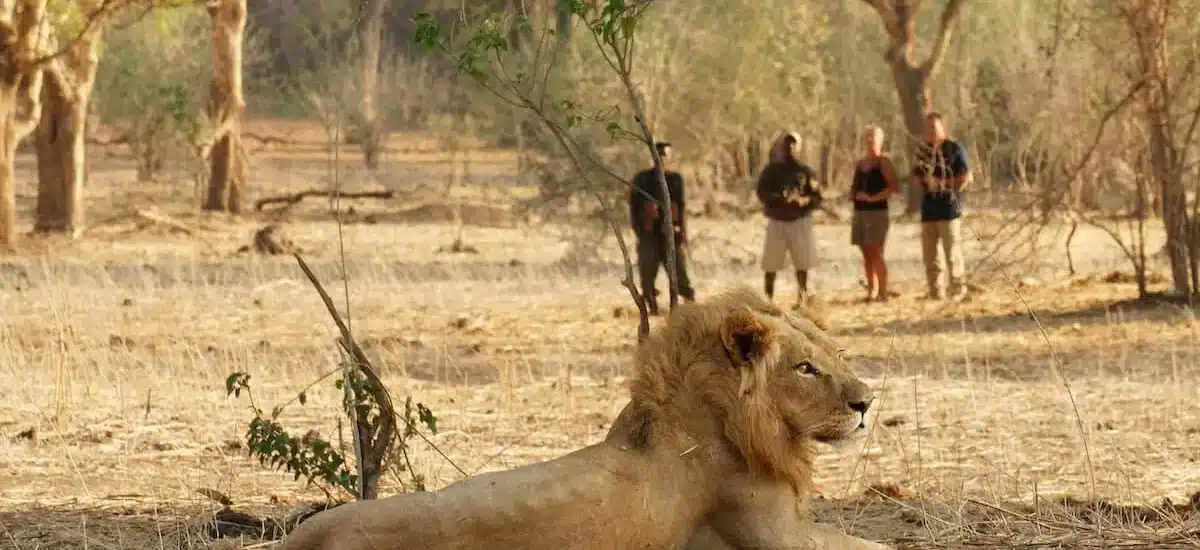
What to do in October
Though hot, this is one of the best times for game drives and predator sightings. Waterholes draw all animals, increasing your chances of seeing diverse species in one spot. Safari drives should be done early in the morning or late afternoon. It’s also the tail end of Zambia’s peak season, with fewer tourists than in August or September.
- South Luangwa
- Lower Zambezi
- Kafue
- Lake Kariba
November
Wet Season :- High Season
November is a transitional month. The first rains arrive, especially in the second half of the month, marking the start of the emerald season. Wildlife begins dispersing, and the landscape transforms into a lush paradise. Temperatures remain high, and the air gets more humid.
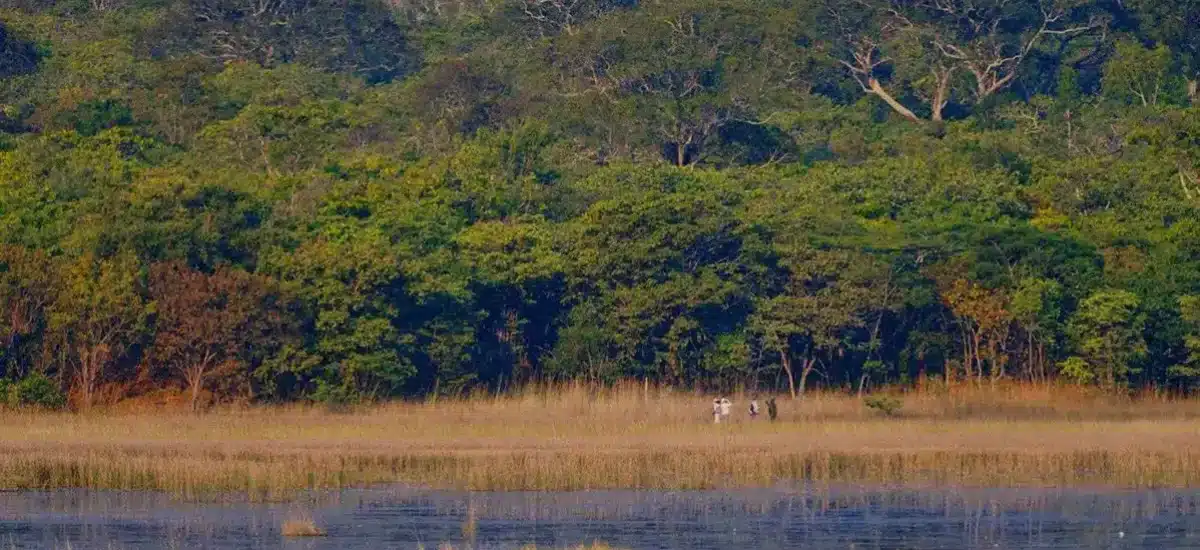
What to do in November
Early November offers one last chance for good game viewing, especially in drier areas. As the rains begin, birdlife surges, and many animals start giving birth. Some camps begin to close toward the end of the month, but for green-season travelers, this is the beginning of a new safari rhythm.
- Victoria Falls
- South Luangwa
- Lower Zambezi
- Kafue
December
Rainy Season
December fully ushers in the rainy season. Afternoon thunderstorms are common, and the bush bursts into a sea of green. While game viewing becomes more challenging, the scenery is breathtaking, and the country feels fresh and alive. Road conditions worsen in remote areas.
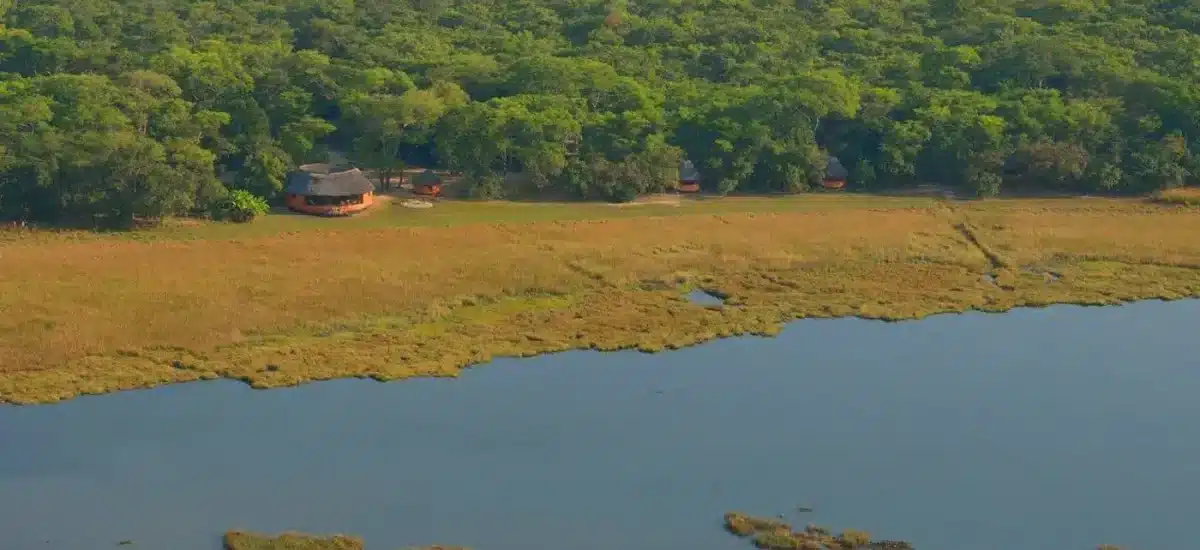
What to do in December
This is a superb month for birdwatching, photography, and cultural travel. Some areas remain open with green season safari offerings. Animals give birth in abundance, and the return of migratory birds creates rich opportunities for ornithology. Lower prices and fewer visitors add appeal for off season adventurers.
- Victoria Falls
- South Luangwa
- Livingstone
- Zambezi River
Our Sustainable Practices
These Safaris are 100% Carbon Offset
How We do It.
We are a safari company in Kenya that believes in sustainable safari practices, community support, and environment management and protection.
By Booking this safari, you contribute 1% of the bookings to sustainable safari practices and carbon offsetting programs in the world. We are a strong advocate of travel sustainability by ensuring we have all that it takes to protect everything for our future generations and healthy living.
100%
Carbon Free Safaris
In partnership with biglife foundation & REDD+ CARBON PROJECT
Recently explored African safaris
Check out the safari packages our customers are exploring and discover something new for your next holiday.
Let us help you customize your trip
Like all of our holidays on this site, this is just an idea. All of our trips are tailor-made, so we’ll always adapt them to suit you.
Talk to an Expert
Browse our Cheetah Safaris Website. We’ll match you with a Specialist in our team who is best suited to help you plan your next safari adventure. To start, contact us now via our contact forms.
Prepare for your trip
Our Safari expert will be of help in planning your safari from start to end. They will advise you on all what you need to bring, wear and travel documents too. They will be ready to answer any queries you have.
When you return
We would love to hear from you about your trip with us. Your feedback will help us always work better and try to be the best. You can leave your review on our TripAdvisor Page.






